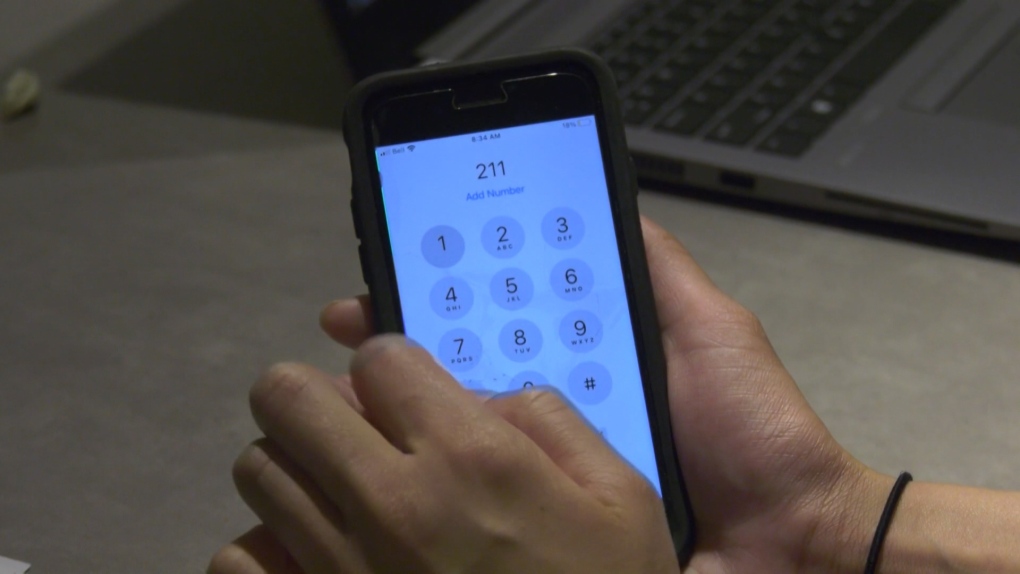Red Deer pilot project aiming to reduce non-emergency 911 calls working: city

A pilot project approved by Red Deer city council has reduced non-emergency 911 calls by more than 800 in six months.
Red Deer’s Social Diversion pilot project has been making a difference, according to city officials.
In 2020, the project was approved by city council as a way to provide help to individuals in distress while also reducing the number of non-emergency calls dispatched to 911.
Since its launch in January, people in Red Deer have had the option to call 211 when they see someone that needs non-emergency support, such as someone experiencing mental health issues or an addiction crisis. The Social Diversion Team, staffed by the Safe Harbour Society, have been responding to those calls.
“They’ll help deal with the situation, whether that is providing a warm handoff to the client, finding out the needs and giving resources. They can transport to a day program, an overnight shelter, a hospital, wherever that client is needing to go at that time,” said Stephanie MacDonald, program manager with Safe Harbour.
In its first six months, Red Deer’s Social Diversion Team has responded to 878 events, averaging approximately six calls per day.
“Each one of these calls represents an event that was diverted from our emergency medical services and policing resources, and also demonstrates our ability to respond to individuals in need with the right resources at the right time,” said Jeremy Bouw, Safe and Healthy Community Supervisor for the City of Red Deer.
According to the city’s statistics, most of the calls were related to homelessness, intoxication, mental health, and inclement weather.
The bulk of the calls are coming from the city’s downtown core with 27 per cent of calls coming from local businesses, 26 per cent from the public, 24 per cent are team initiated events, and nine per cent from community agencies. The remaining 14 per cent are from multiple other sources.
“We have had really great feedback from downtown businesses, where a majority of our calls stem from,” said MacDonald.
“The Social Diversion Team has been very effective in both working with the individual to connect them with the resources they need, as well as provide positive outcomes for the businesses that have called us.”
The one year pilot project will expire at the end of November, but city council will have a chance to extend or expand it before that date.
“When we launched this program, our goal was to improve community safety by providing a broader spectrum of supports,” said Bouw.
“In reviewing the six-month data, it has been demonstrated that the Social Diversion Model has been successful in supporting first responders, the business community, citizens, and the individuals in crisis.”
CTVNews.ca Top Stories

'They needed people inside Air Canada:' Police announce arrests in Pearson gold heist
Police say one former and one current employee of Air Canada are among the nine suspects that are facing charges in connection with the gold heist at Pearson International Airport last year.
House admonishes ArriveCan contractor in rare parliamentary show of power
MPs enacted an extraordinary, rarely used parliamentary power on Wednesday, summonsing an ArriveCan contractor to appear before the House of Commons where he was admonished publicly and forced to provide answers to the questions MPs said he'd previously evaded.
Leafs star Auston Matthews finishes season with 69 goals
Auston Matthews won't be joining the NHL's 70-goal club this season.
Trump lawyers say Stormy Daniels refused subpoena outside a Brooklyn bar, papers left 'at her feet'
Donald Trump's legal team says it tried serving Stormy Daniels a subpoena as she arrived for an event at a bar in Brooklyn last month, but the porn actor, who is expected to be a witness at the former president's criminal trial, refused to take it and walked away.
Why drivers in Eastern Canada could see big gas price spikes, and other Canadians won't
Drivers in Eastern Canada face a big increase in gas prices because of various factors, especially the higher cost of the summer blend, industry analysts say.
Doug Ford calls on Ontario Speaker to reverse Queen's Park keffiyeh ban
Ontario Premier Doug Ford is calling on Speaker Ted Arnott to reverse a ban on keffiyehs at Queen's Park, describing the move as “needlessly” divisive.
'A living nightmare': Winnipeg woman sentenced following campaign of harassment against man after online date
A Winnipeg woman was sentenced to house arrest after a single date with a man she met online culminated in her harassing him for years, and spurred false allegations which resulted in the innocent man being arrested three times.
Woman who pressured boyfriend to kill his ex in 2000s granted absences from prison
A woman who pressured her boyfriend into killing his teenage ex more than a decade ago will be allowed to leave prison for weeks at a time.
Customers disappointed after email listing $60K Tim Hortons prize sent in error
Several Tim Horton’s customers are feeling great disappointment after being told by the company that an email stating they won a boat worth nearly $60,000 was sent in error.

































